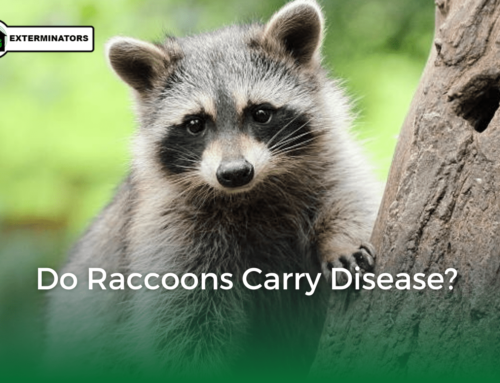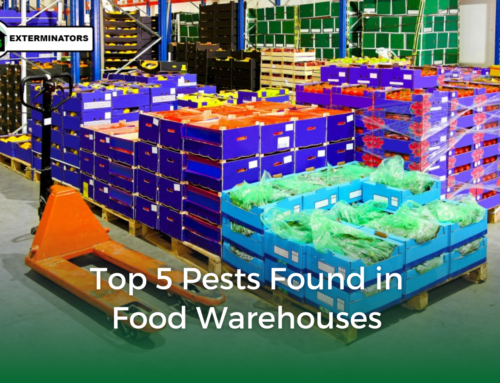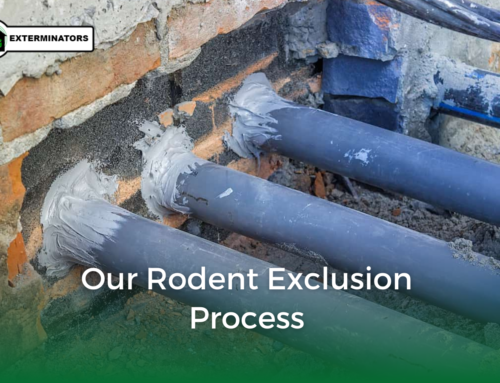Squirrels are common in many areas, often seen in parks and backyards. While they seem harmless, it’s important to know if they carry diseases that can affect humans or pets. Understanding the risks associated with squirrels can help you manage them more effectively. Let’s look at the potential diseases squirrels can carry and the best ways to handle squirrel control.

Latin descent repairman or blue collar/service industry worker makes service/house call at customer’s front door. He holds a clipboard and shakes hands with customer. Inspector, exterminator, electrician, technician. He wears a khaki uniform.
Potential Diseases Carried by Squirrels
Rabies
Rabies is a viral disease that affects the nervous system of mammals. While it is rare for squirrels to carry rabies, it is not impossible. A bite from a rabid squirrel can transmit the virus, leading to severe health problems if not treated quickly. Always seek medical attention if bitten by any wild animal.
Lyme Disease
Squirrels can carry ticks, which are known to spread Lyme disease. This bacterial infection can cause a range of symptoms, from rashes to serious neurological issues. If you live in an area with a high tick population, be cautious around squirrels and other small mammals.
Leptospirosis
Leptospirosis is caused by bacteria found in the urine of infected animals, including squirrels. This disease can be transmitted through direct contact with contaminated water or soil. Symptoms range from mild flu-like signs to severe conditions affecting the liver and kidneys.
Salmonellosis
Salmonellosis is another bacterial infection that squirrels can carry. It spreads through contact with feces and can cause gastrointestinal issues in humans. Practicing good hygiene and avoiding direct contact with squirrel droppings can reduce the risk of infection.
Handling Squirrel Control
Preventing Squirrel Infestations
To reduce the risk of diseases, it’s important to keep squirrels away from your home:
- Seal Entry Points: Ensure there are no gaps or holes in your roof, walls, or foundation where squirrels can enter.
- Remove Food Sources: Avoid leaving food out that can attract squirrels. Secure trash cans and store pet food indoors.
- Trim Trees: Keep tree branches trimmed back from your home to prevent squirrels from jumping onto your roof.
Safe Squirrel Removal
If you already have squirrels in your home, it’s crucial to remove them safely:
- Professional Help: Consider hiring a professional pest control service to handle squirrel removal. They have the tools and expertise to do the job safely.
- Humane Traps: Use humane traps to capture and relocate squirrels without harming them. Check local regulations before relocating wildlife.
- Avoid Direct Contact: Never attempt to handle a squirrel with your bare hands. Wear gloves and use proper equipment when dealing with trapped animals.
Maintaining a Squirrel-Free Home
After removing squirrels, take steps to prevent their return:
- Regular Inspections: Periodically check your home for new entry points and seal them promptly.
- Cleanliness: Keep your yard clean and free of debris that can attract squirrels. Regularly check for and remove nests or food caches.
- Deterrents: Use squirrel deterrents such as ultrasonic devices or natural repellents to keep them away from your property.
Safeguarding Your Home from Squirrel-Related Health Risks
While squirrels are generally not a major threat, they can carry diseases that pose health risks to humans and pets. By understanding these risks and taking steps to control squirrel populations around your home, you can create a safer environment. Remember to seek professional help for infestations and always practice good hygiene. With the right measures, you can enjoy your outdoor space without the worry of disease from squirrels.
If you need professional assistance, E&G Exterminators offers reliable services to safely and effectively manage squirrel infestations. We also manage common household pests like mice, ants, and roaches. Our team is trained and experienced in using eco-friendly methods to remove pests without harming the environment or your health. Contact us today for a consultation and take the first step towards protecting your home and family from squirrel-related health risks.






